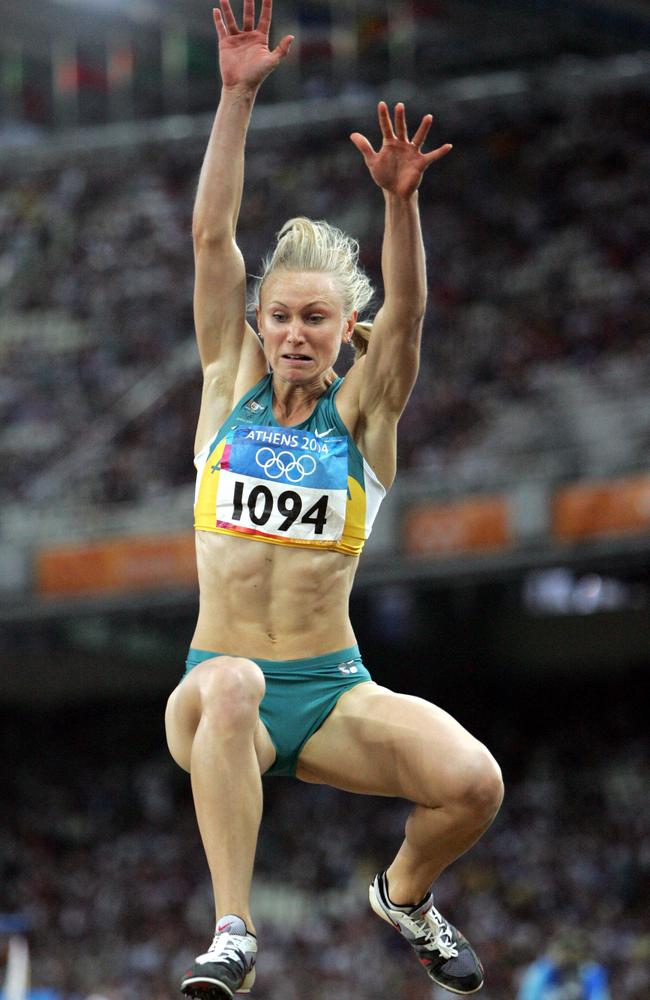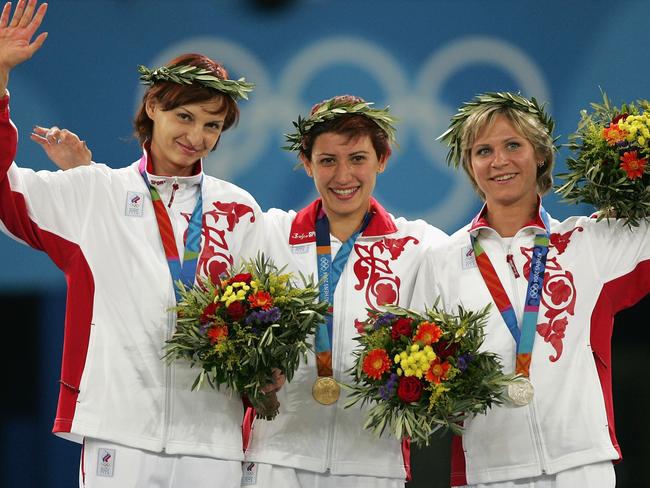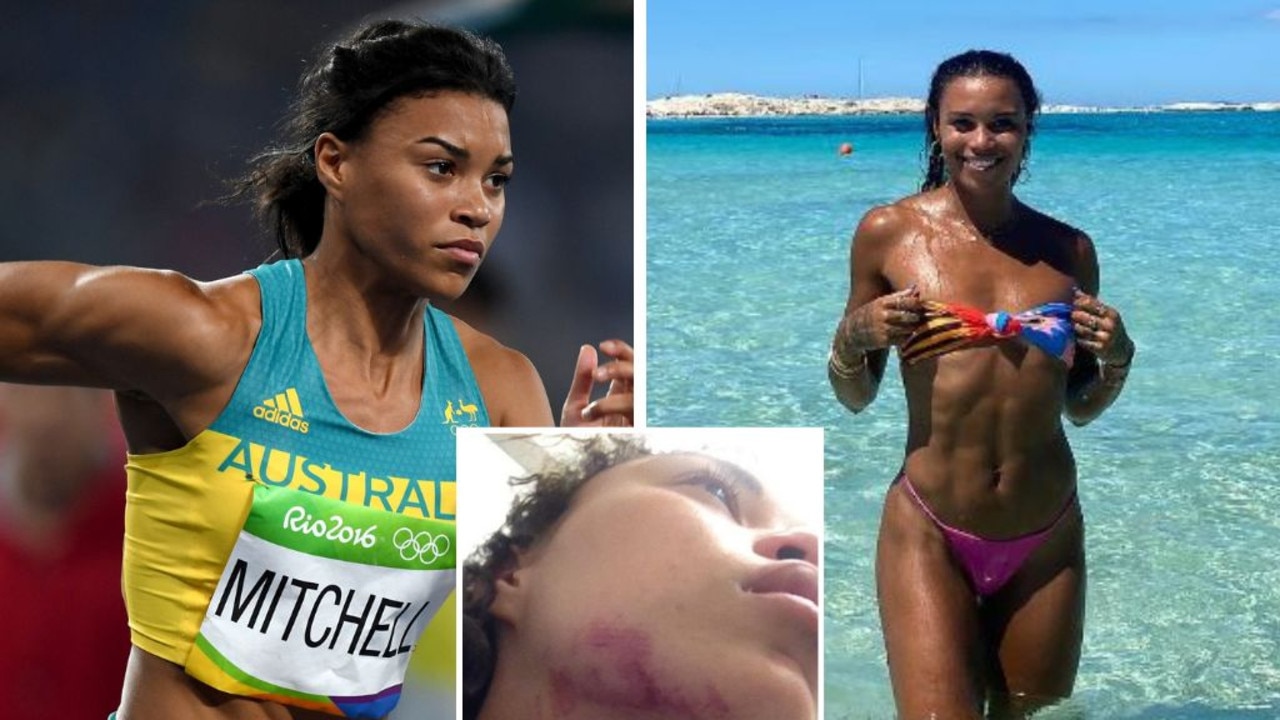Australian long jumper Bronwyn Thompson closer to claiming Athens Olympics gold medal 13 years later
AUSTRALIA has moved a step closer to claiming its first ever Olympics long jump gold medal, 13 years after the drug-tainted event was held.

Athletics
Don't miss out on the headlines from Athletics. Followed categories will be added to My News.
EXCLUSIVE
It’s been more than a decade in the making.
But Australia has moved a step closer to claiming its first ever Olympics long jump gold medal, 13 years after the drug-tainted event was held.
Athletics Australia revealed on Monday it would support former star Bronwyn Thompson, who finished behind three Russian drug cheats at the 2004 Athens Olympics and take the fight up to the sport’s governing body, the IAAF.
Thompson launched a bid to be awarded her gold medal earlier this year and Athletics Australia has confirmed it would support Thompson at the highest level.

The 39-year-old had called on the national federation to support her push for the IAAF to launch an immediate investigation into the long jump medals from Athens.
Thompson, a Brisbane physiotherapist, finished fourth in Athens behind three Russian athletes, Tatyana Lebedeva, Irina Simagina and Tatyana Kotova, who all tested positive for performance enhancing drug offences within the four-year post-Games period.
Athletics Australia’s interim CEO Michael Hall said they were taking up Thompson’s plight.
“Bronwyn’s request for an inquiry into the outcome of the women’s long jump final at Athens 2004 is one Athletics Australia wholeheartedly supports,” Michael Hall, Athletics Australia Interim CEO, said.
“At a recent board meeting, it was unanimously agreed that we would approach the IAAF to determine what action, if any, can be taken to launch an investigation and we will provide an update on the outcomes of this endeavour as more information comes to hand.
“Athletics Australia believe that Bronwyn has a claim for the gold medal, but to ensure a resolution for this injustice we must secure the support of the governing body for the sport.
“It is our intention to make every effort to do so. Discussions were also held with the Indian Athletics Federation this month, to work in co-operation.
“A level playing field for all athletes, protecting clean athletes from the scourge of doping, is critical and Athletics Australia will continue making every effort to ensure this outcome not only for Australian athletes, but for all those who take to the field of play to compete.”
It is understood Athletics Australia spoke with their international counterparts at the recent World Athletics Championships in London.

Great Britain’s Jade Johnson and Anju Bobby-George from India, have also called on their national federations and the IAAF to reallocate the 2004 Olympic long jump medals.
Thompson said yesterday: “Hopefully with the three federations working together it will strengthen our case with the IAAF.”
“I feel a sense of relief, and gratitude that Athletics Australia will take this up with the IAAF, but there’s still a long road ahead but I don’t think the IAAF can ignore all the evidence of Russia’s long-term doping program.”
In the lead-up to the Rio Olympics, over 100 Russian athletes were banned following an investigation into a state-run doping program that administered a cocktail of anabolic steroids to the country’s world-class athletes.
Thompson’s former coach Gary Bourne, a long-term member of the Australian Olympic team and the jumps coach for the Australian team in London, said the Russian athletes can be outed in the same way as Marion Jones and Lance Armstrong, who never returned a positive drug test at an Olympics but were retrospectively stripped of their medals.

“For God’s sake — these Russian athletes tested positive in competition after Athens — you don’t go on to performance enhancing drugs after you’ve won an Olympic medal ... to suggest otherwise is ludicrous.”
In recent years, the International Olympic Committee (IOC) has stripped medals from drug cheats and reallocated them.
Australian walker Jared Tallent was elevated to gold in March last year when Russian Sergey Kirdyapkin was stripped of his 2012 Olympic gold medal.
In addition to the IOC, the international governing body of each Olympic sport also has the authority to strip medals — in Thompson’s case, the IAAF.
Thompson, now a mother of four, said: “We may not change the outcome but we have to try.”
Originally published as Australian long jumper Bronwyn Thompson closer to claiming Athens Olympics gold medal 13 years later


